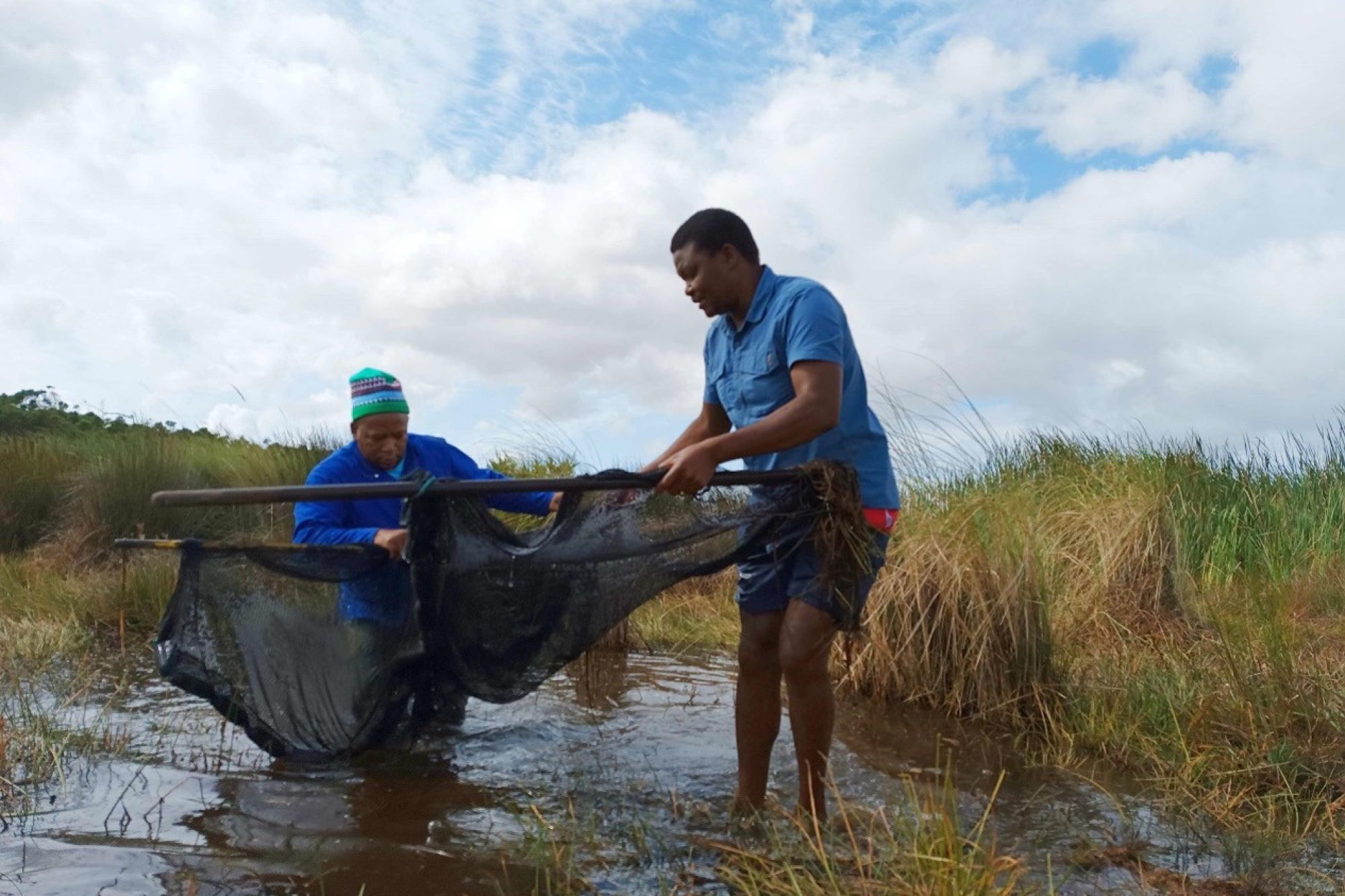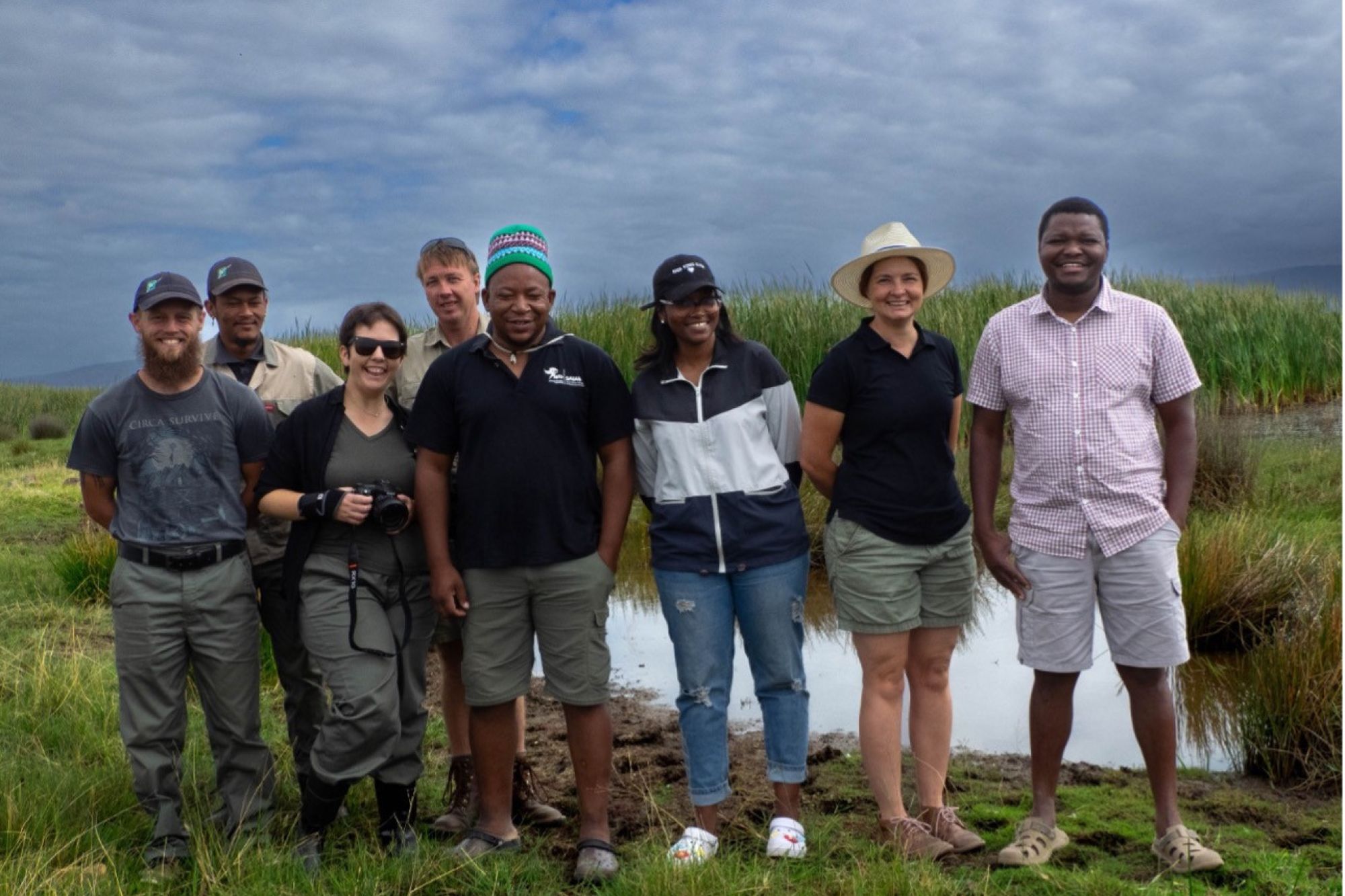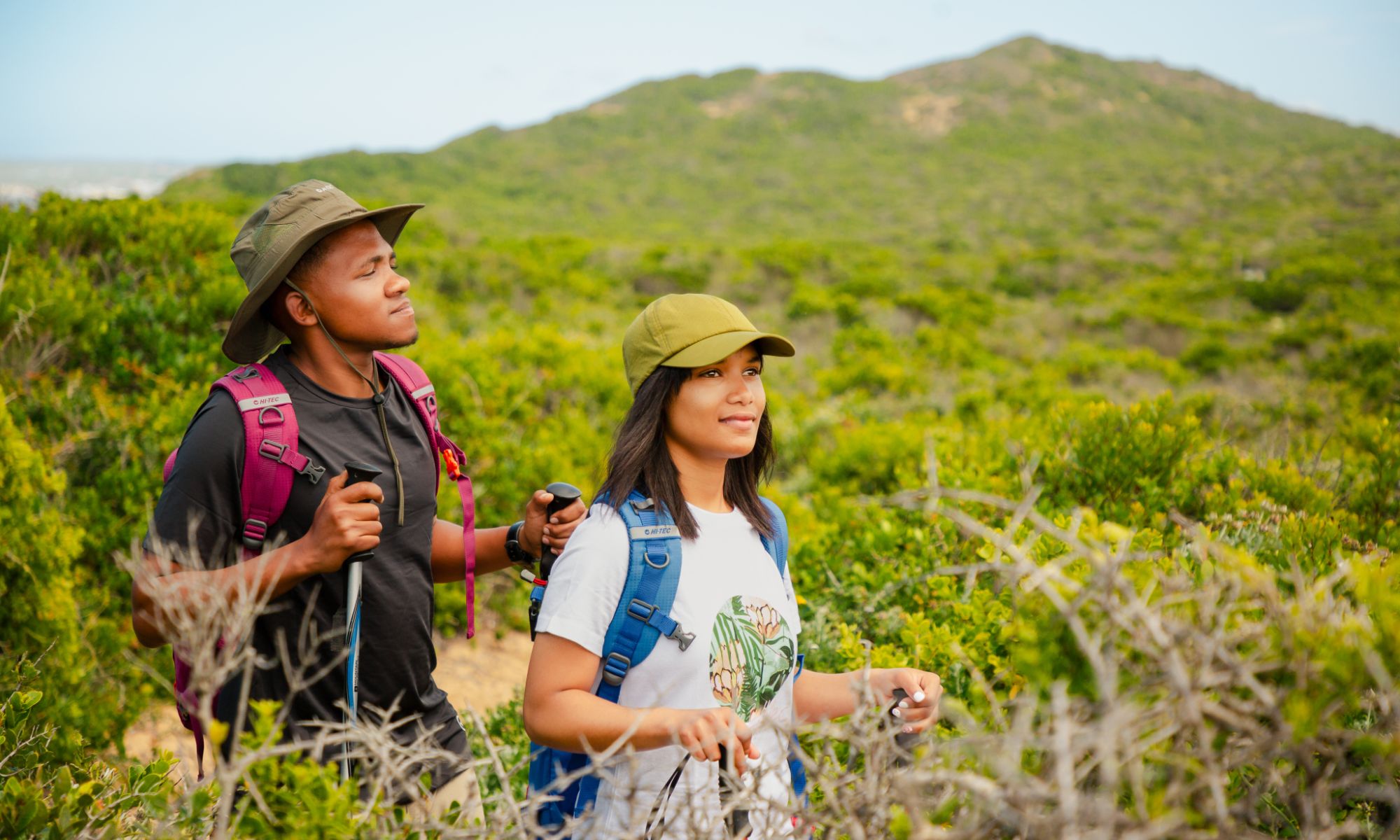
Guardians of the galaxias: How partnerships are key to identification and conservation of unique fynbos fish taxa
The Cape galaxias, Galaxias zebratus, are a small-bodied freshwater fish with a wide distribution in the Cape Fold Ecoregion. While being described as far back as 1861, it was only recently discovered that the single widespread species is a species complex comprising several unique and genetically diverse lineages. This work has been led by Prof Albert Chakona from the South African Institute for Aquatic Biodiversity (SAIAB). Freshwater fishes, including the Cape galaxias, have been identified as the most threatened taxonomic group in the most recent National Biodiversity Assessment (NBA). This is because of the impact from invasive fish and anthropogenic impacts on habitat quality and quantity.
Freshwater fish require urgent conservation action, but any conservation action must be underpinned by correct taxonomy and the ability to correctly identify co-occurring taxa during field surveys. To facilitate this, Prof Chakona, and a team from SAIAB led an excursion to the Nuwejaars Wetlands Special Management Area (SMA) in February 2024 to train field staff in identifying unique but co-occurring galaxias lineages. The SMA is in the Nuwejaars catchment, which is home to two unique galaxias lineages as well as a unique redfin lineage. To better understand the status and distribution of these threatened taxa, the SMA has embarked on an International Union for Conservation of Nature (IUCN) funded project to do fine scale surveys as well as identify threats and management options to conserve these fishes. As a collaborator in the project, CapeNature faunal ecologist Dr Martine Jordaan was able to provide training to the field staff in data collection and analysis and participate in field training to correctly identify different galaxias lineages. Data from the project will be used to update the Red List status of the relevant taxa and to facilitate on the ground conservation action in the area.

Prof Albert Chakona and Dr Nkosinathi Mazungula illustrating the use of a seine net to sample the shallow habitat of the Nuwejaars wetland for the presence of Cape galaxias.

Photo 2: Team members from the Nuwejaars Wetlands SMA, South African Institute for Aquatic Biodiversity and CapeNature on a field excursion to search for and correctly identify undescribed galaxias lineages (Photo © Heather D’Alton).
Related News
How can I assist you today?
How can I assist you today?





